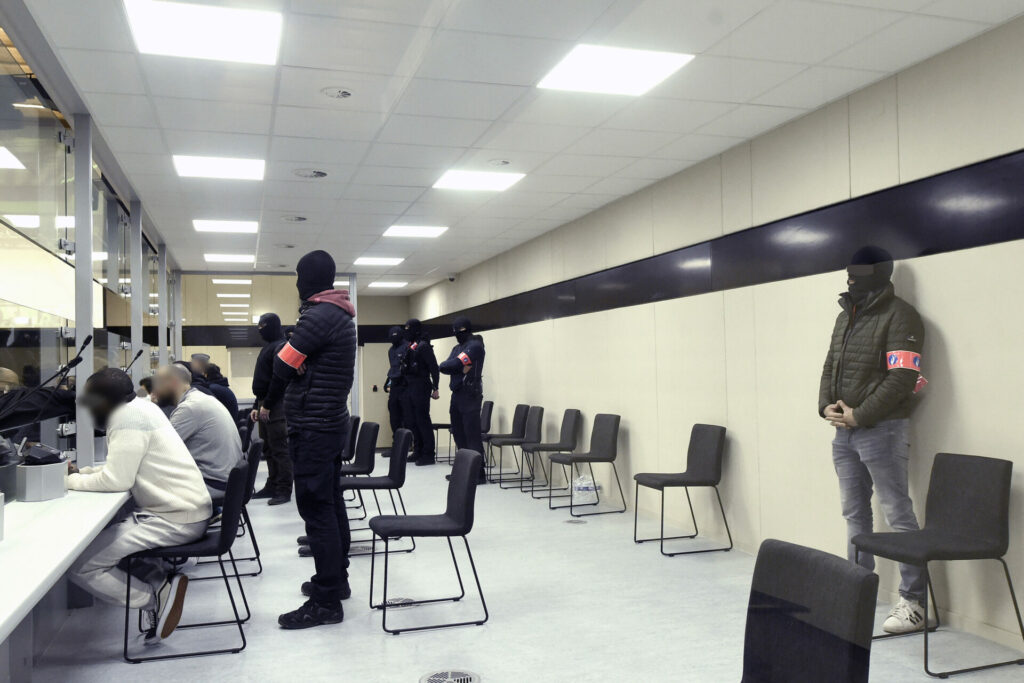Sofien Ayari has continually maintained during hearings on the March 2016 terror attacks and the shooting in the Rue du Dries in Forest that he did not feel involved in the attacks in Paris and Brussels and that "committing stuff in Europe was not his thing," according to investigators.
It was the investigators turn on Wednesday to do a presentation of the accused at the Brussels Assise Court, in charge of trying cases linked to the 22 March 2016 attacks in the Belgian capital. The Tunisian has systematically asserted his right to remain silent about the Brussels attacks.
Sofien Ayari is something of a latecomer to the Brussels attacks investigation. It was only in May 2018, at the request of the Federal Prosecutor's Office, that the investigation began looking into his case. "Sofien Ayari and Salah Abdeslam were detained at the time of the attacks, so their possible immediate involvement was not obvious," investigating judge Berta Bernardo Mendez explained.
Business trip turns out to be a jihadi jaunt
Ayari was in fact arrested, alongside Salah Abdeslam, on 18 March 2016 in Molenbeek-Saint-Jean. Three days earlier, the two defendants had fled from the flat in the Rue du Dries following a search that was to lead to the shootout resulting in the death of Mohamed Belkaid. The Tunisian was sentenced for these facts to 20 years' imprisonment by the Brussels Criminal Court in April 2018, then to 30 years in prison by a French assize court for the Paris attacks.
Born in Tunis in 1993, the man who bears the nom de guerre of Abu Hamza - and of Abu Ahmed, according to Osama Krayem - left for Turkey in late 2014 after making his family believe he intended to set up a business there. His real intention was to go to Syria, where he wanted to fight the regime. He stayed there for a short time before embarking on a journey to Europe through a well-travelled migration route.
Investigators noted that, from their meeting in Syria or on the return trip (according to Osama Krayem's fluctuating statements) Sofien Ayari's journey in Europe is intrinsically linked to that of the Swede. The two made the return journey together, were picked up in Germany by Salah Abdeslam and frequented the same safe houses in Belgium. "I stayed with him, except in Jette, until Forest," Osama Krayem said.
Behaviour change in 2013: beard, traditional clothes, no more cafés
While Sofien Ayari probably did not participate in making the bombs used for the Brussels attacks, as confirmed by the absence of decisive DNA traces of the accused in the "conspiracy" flat in Rue Max Roos in Schaerbeek, his arrest in the company of Salah Abdeslam, nevertheless, greatly disrupted the functioning of the Brussels cell.
It is likely that this event led the suicide bombers to finally attack the Belgian capital. Recordings found in a PC discovered by garbage collectors in Rue Max Roos show that the cell had to work in a hurry for fear of "rotting in prison." Osama Krayem also confirmed that "Belgium was not originally targeted."
The investigators ended their presentation with a short morality check based on a hearing with Sofien Ayari's parents, who claimed to have seen a change in his behaviour in 2013. At that time, he began to pray assiduously, stopped going to cafes, wore traditional clothes and let himself grow a beard, which is "suspicious in Tunisia," according to Berta Bernardo Mendez.
When asked about his relationship with religion, the accused nevertheless said he was not a radical but did not like injustice.

